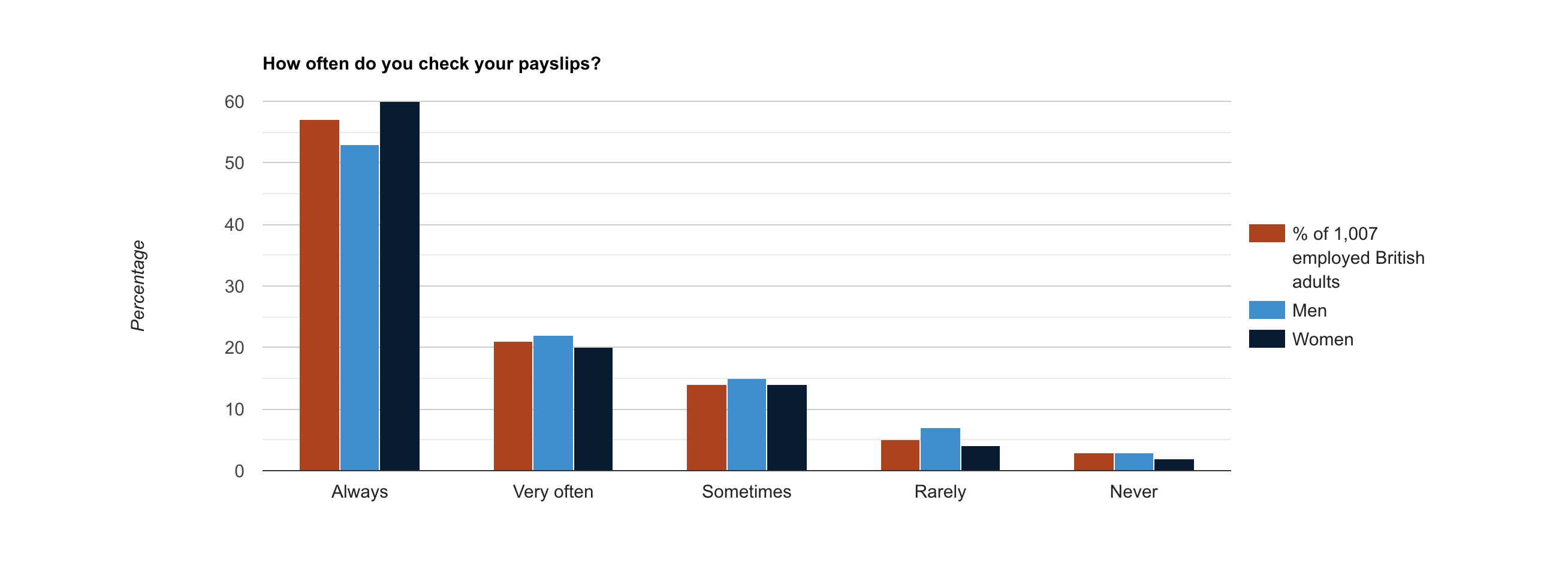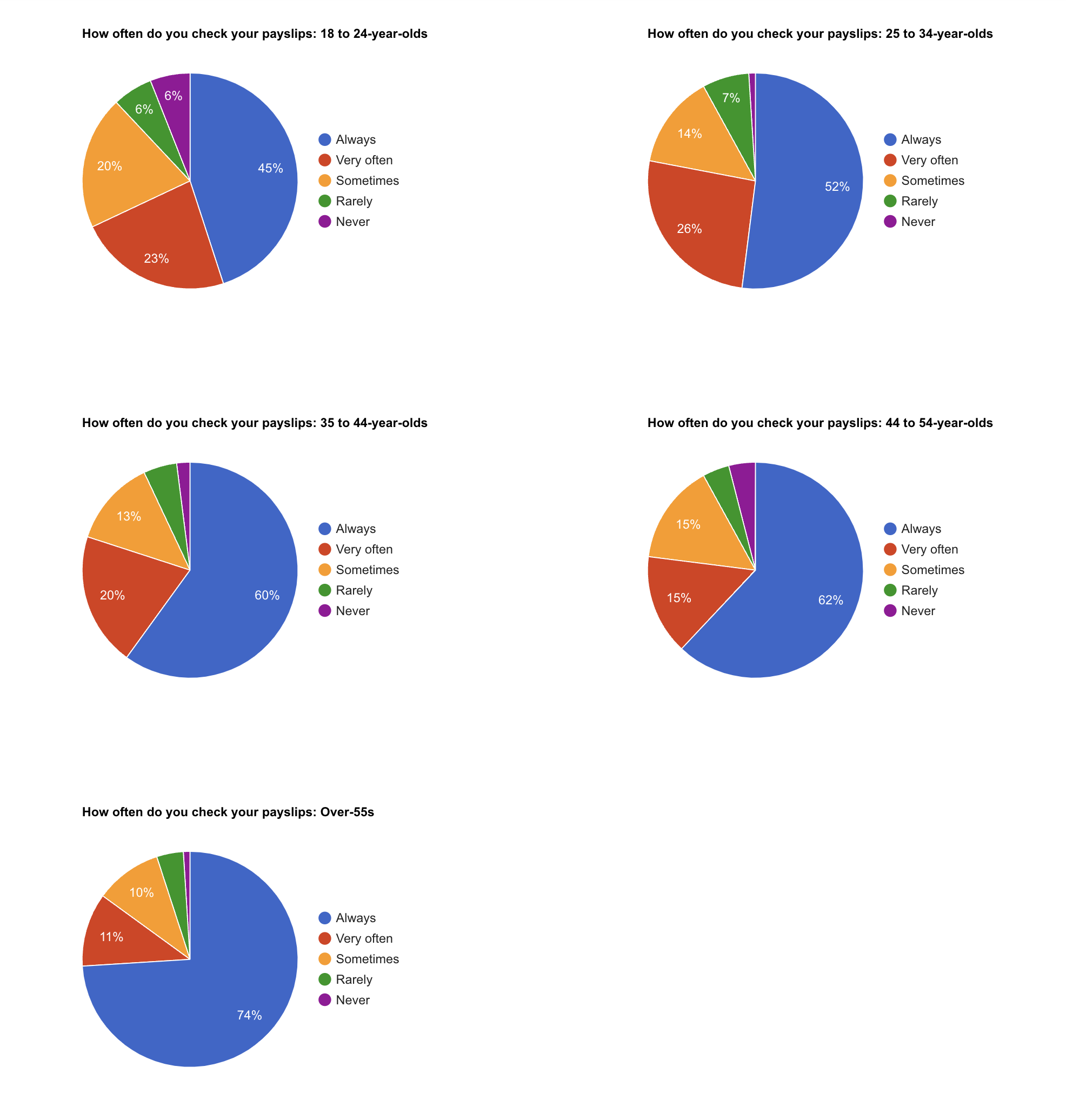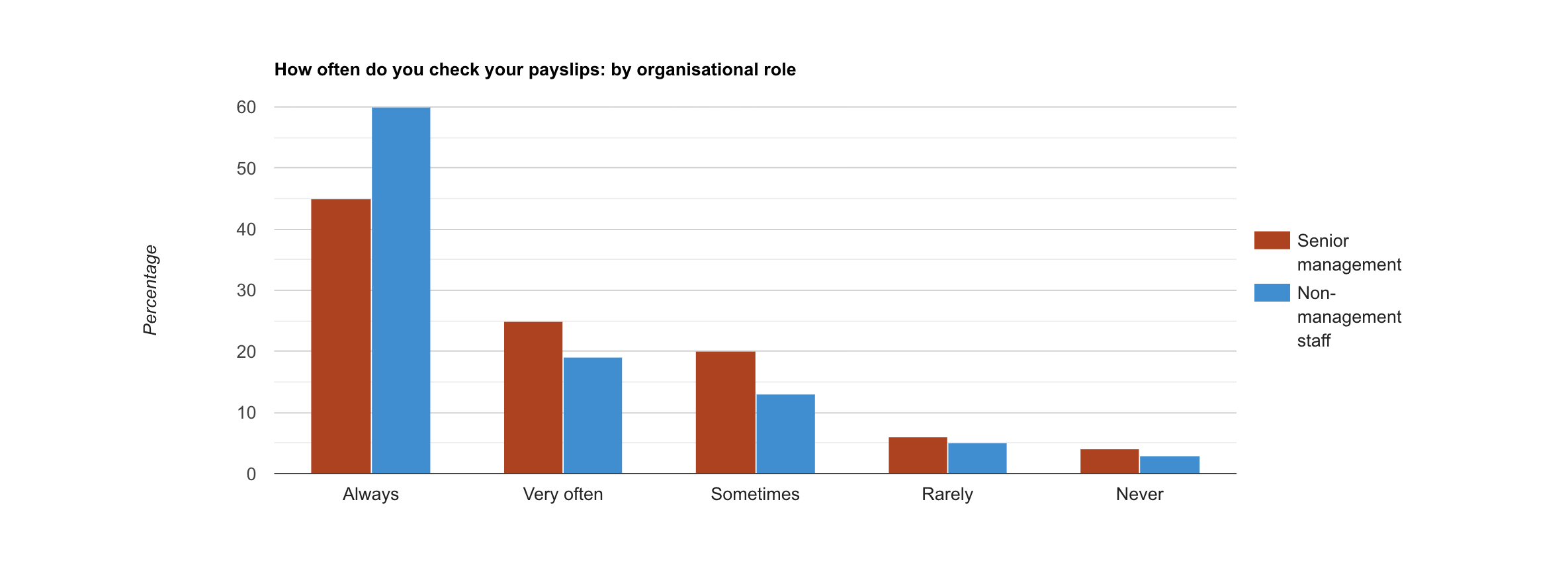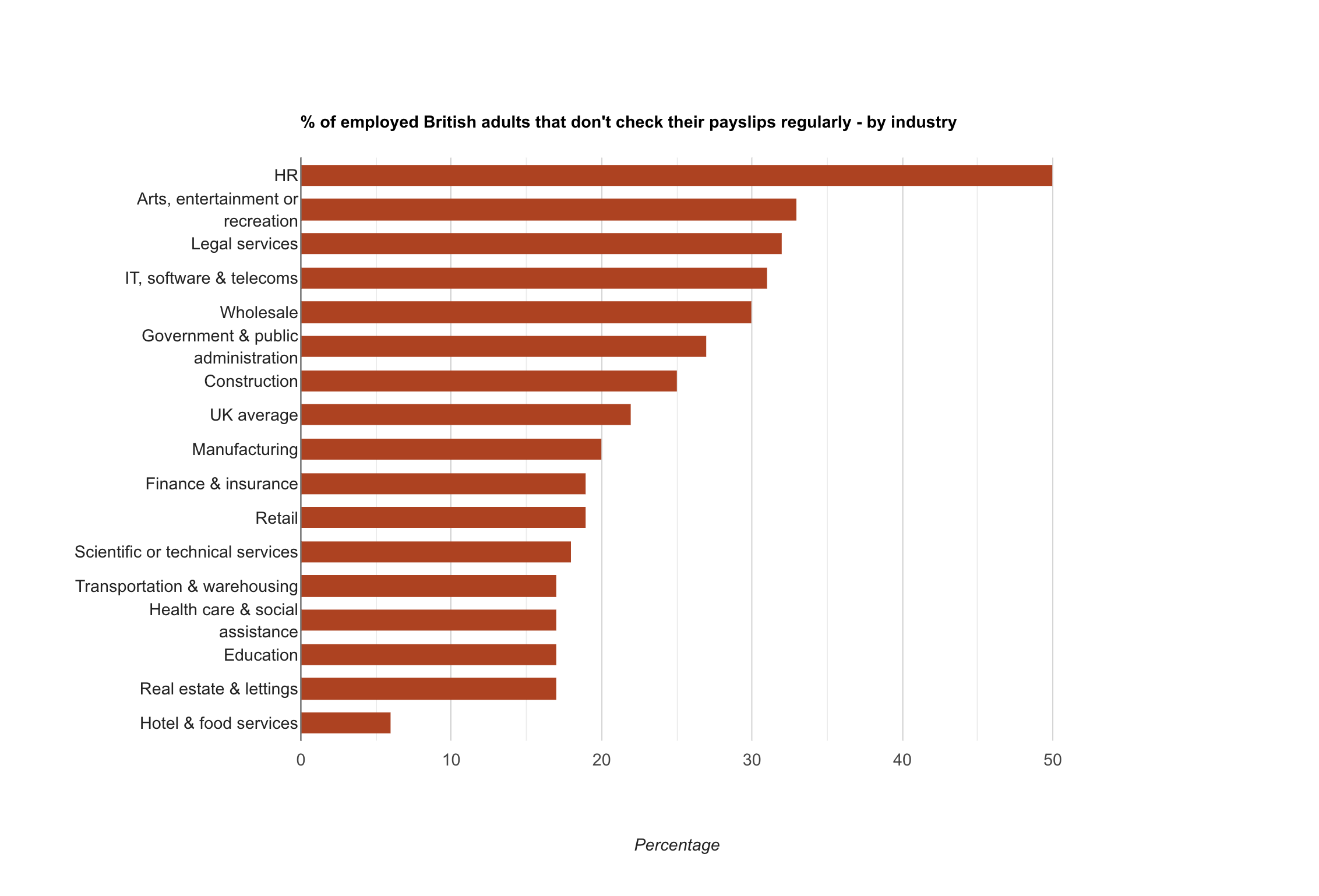HR software provider Ciphr polled 1,007 British workers to find out how often people check their payslips.
Here’s the results:
On average, just over half of respondents (57%) say they always check their payslips, while one in five (21%) check them frequently (very often). A further one in six (14%) check them sometimes, one in 20 (5%) say they rarely do, and one in 33 (3%) never do.

By age:
Nearly three-quarters (74%) of people over-55 say they always check their payslips, compared to around three-fifths (61%) of 35 to 54-year-olds, half (52%) of 25 to 34-year-olds, and less than half (45%) of 18 to 24-year-olds.
Younger workers are the least likely to look at their payslips overall, with around a third (32%) not checking them regularly.

By organisational role:
Employees in non-management roles seem to be more conscientious when it comes to their payslips than their bosses. 60% of non-managerial staff compared to 45% of people occupying senior management positions say that they always check their payslips.

By industry:
Hospitality and foodservice workers are, reportedly, the least likely to not check their payslips regularly (6%). Followed by employees working in transportation and warehousing, health and social care, education, and real estate – 17% of these employees also say they don’t check their payslips regularly.

Notes
Ciphr polled 1,005 UK adults on 23 September 2021 as part of a wider survey on the UK’s gender pay gap. 12% of survey respondents work in small companies with 26-50 employees, 28% work in medium-sized companies with 51-250 employees, 22% work in large companies with 251-1,000 employees, 15% work in organisations with 1,001-5,000 employees, and 23% work in enterprises with over 5,001 employees.
All statistics have been rounded to the nearest integer or to one decimal place. Totals may not sum due to rounding.
